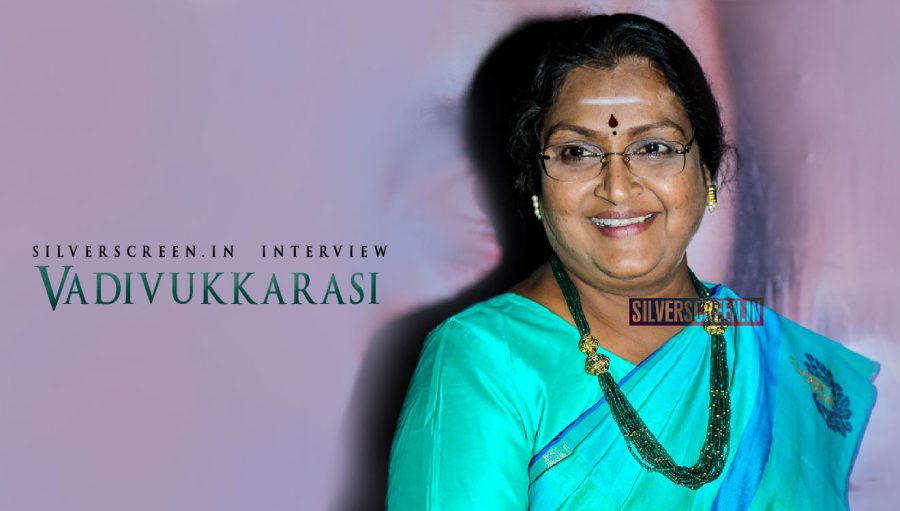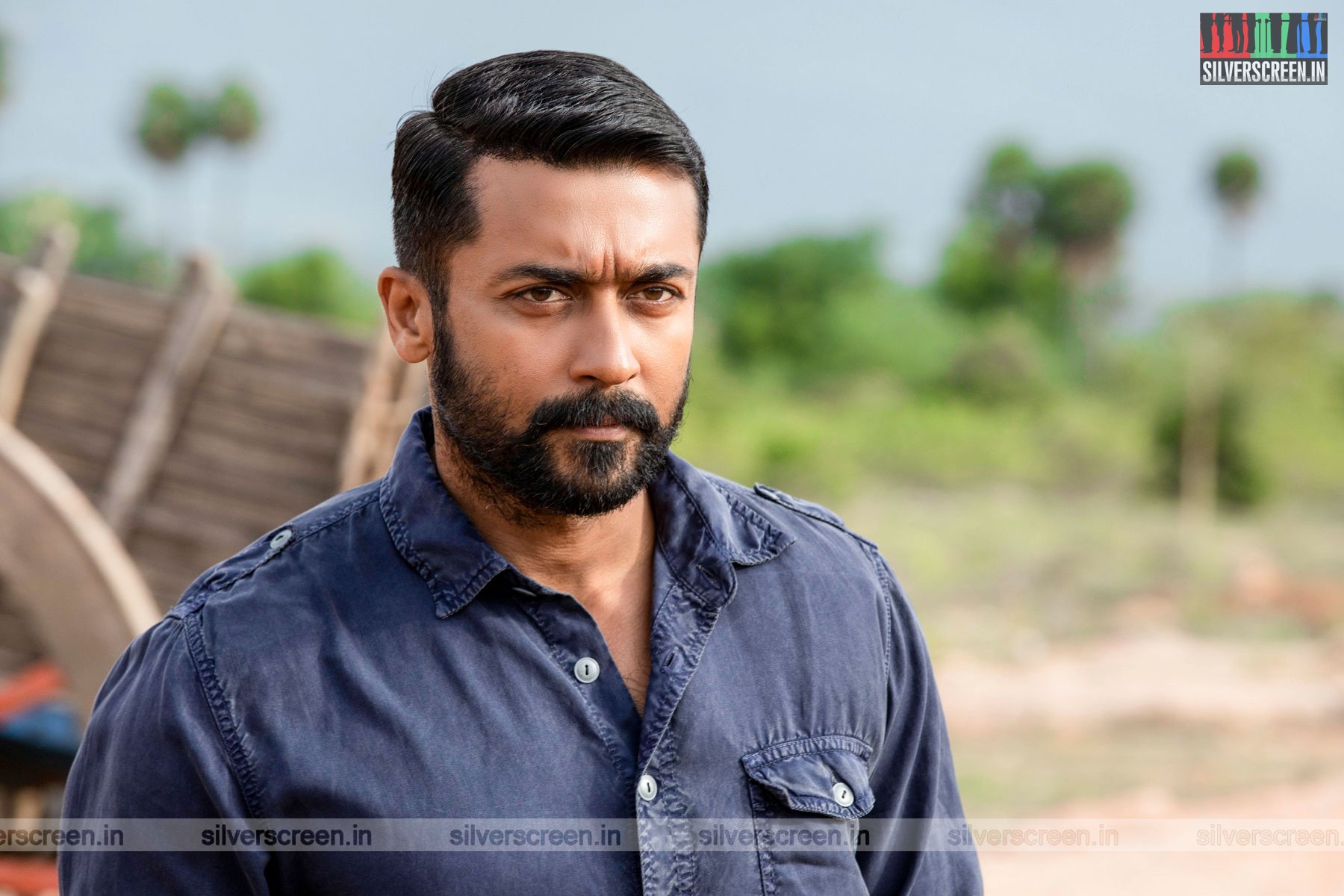In a career spanning 40 years, 120 + films and 20 + television series, actress Vadivukkarasi says she’s now at a phase in her life where she can afford to choose. Her roles on screen have mostly been villainous, or demanded that she act twice her age – even the ones on TV. Vadivu had felt resentful at times, but now, the actress says she’s made peace with her past. She is also hopeful that her character in Peranbu would bring her glory, not brickbats
In life and on screen, Vadivukkarasi is a woman to reckon with. As we speak on a balmy evening in Chennai, her voice booms across the room. Her spirit was always larger than life, the actor says. Even as a child, she would stand out. Long limbs that she would take years to grow into and that formidable name that her parents gave her. “Maybe it needed a film career to truly become mine,” she says, “Now, that name of mine means something.”
Her life was unremarkable till she decided to enter cinema, the actor recalls almost hesitantly, reluctant to take a walk back in time. This reluctance stems from her decision to keep a part of her life to herself. “My image is entirely different as you know. In real life, when I meet people on the roads, I sense negativity. I decided early on that one part of my life must remain untouched by all this. That is why I keep my personal life behind curtains.”
Playing negative roles is frustrating enough, says Vadivukkarasi; getting praised for it would have perhaps made it tolerable. “But, I am so convincing as the villain that some assume that I must be so in real life as well.”
Vadivukkarasi’s past includes an illustrious relative whose sudden demise left the family reeling under financial strain. “We had a large thottam outside Chennai and that is where we lived. It was wonderful growing up there. Everything was warm and happy. My uncle was director AP Nagarajan. He made such stunning movies. His work was steeped in mythology. But at home, there was no shop talk. I didn’t even think that I’d have to follow him into the family business, so to speak. My narrative was meant to be different.
But fate had other plans.” His sudden death left Vadivukkarasi’s family with no option but to sell their belongings and leave for the big city. “We had little to go by. Tough decisions had to be made. We gave away our farmhouse. We gave away almost everything. In Madras, we looked for a fresh start.” There were but few choices for a young woman who had little training in commerce. “I had just finished my PUC when my uncle died. I wanted to study further but all those dreams were put on hold. I had to step up and make money. I did what I had to.”
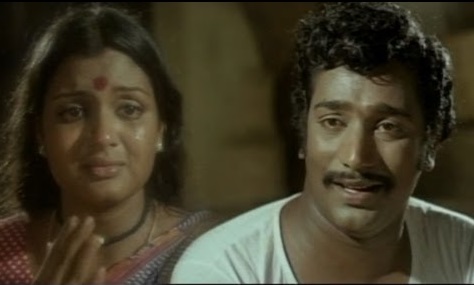
A stint as a primary school teacher followed. “My first salary was Rs 70. It was not enough for us, but at least it was something. We had to take what we could.” In the years that followed, Vadivukkarasi flitted from one job to the next, always in search of the position that would enable her to fulfill all her family’s needs. “I was tall. I was dark. I was never conventionally pretty like the heroines then or now. I always stood out. But that wasn’t enough. I was rejected for many jobs because of the way I looked. They didn’t explicitly say so but I understood,” she says.
Eventually, Vadivukkarasi joined the housekeeping department at Taj Connemara in Madras. “It was an exciting phase of life. They did not offer me a job per se. But they gave me a stipend as I was an intern there. It was back breaking work. But I learnt a lot. Exposure is what I got at Taj and to this day, I remain very grateful for the experience since it prepared me for the things to come.”
Her connections to the film industry brought her to the notice of a producer with Doordarshan. “I joined as a chorus girl. Enakku paatu gnanam ille. I can sing, but I was not trained to sing. When I auditioned for the position, I was asked if I could sing. You have to understand that I was in a position where I could never say ‘no’. I needed that job. So I said I can. I sang a few lines from ‘Kanna Karumai Nira Kanna‘. I had a strong belief in myself. And soon, I had the job I wanted.” The choice of song seems curious. Vadivukkarasi then confides that she struggled for many years with debilitating insecurities over her appearance and complexion. “I was really conscious of the way I looked. I towered over most men and women. I wasn’t pretty. When my uncle was around, I never felt this way. But in Madras, where each person stands for himself, I was made to feel unwanted.”
‘Kanna Karumai Nira Kanna’ from Naanum Oru Penn, a social drama about a dark-complexioned girl who faces constant rejection from her husband and eventually wins him over, was a soothing balm for Vadivukkarasi. “I realised that there was a happy ending for everybody. I could relate to the struggles she goes through in the film. So when they asked me to sing, I instantly chose the song which meant the most to me. The producer told me later that my rendition moved him.”
*****
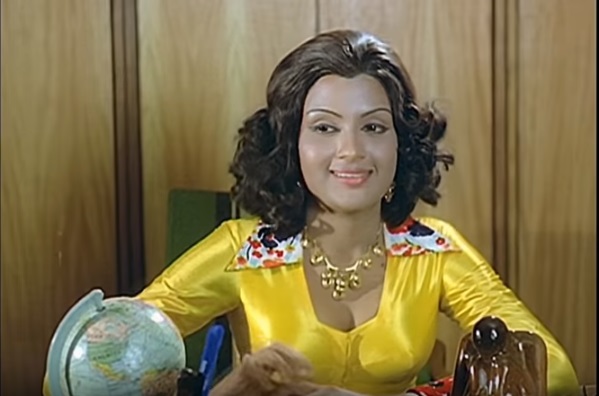
Vadivukkarasi’s first role was in Bharathi Raja’s Sigappu Rojakkal. By her own admission, Vadivukkarasi was ‘all over the place’ in her cameo as Chithra, a caricature of a (then) modern day woman who was not above using her wiles to get ahead. Her tall, rangy physique was stuffed into a bright yellow jacket, and a floral skirt was presented to her. Her hair was crimped and curled and rolled into a hairstyle that she still hates looking at. Her makeup was glorious, however. When the assistant began to tie her jacket above her navel, Vadivukkarasi felt uneasy. “I didn’t know it was to be. I was nervous.”
But all that didn’t register on screen. Her role might have been a small one, edited to portray her in a negative light, but it proved that even young and untrained as she was, Vadivu had swag.
“My appearance didn’t fetch me the kind of roles I wanted. Right now, there’s a positive movement that has made sure that dusky heroines are able to bag lead roles. But back then, there was a lot of stereotyping. I played vamps and villains. And when time came for me to be a lead actor’s wife, I was made to be the shrew.” Vadivukkarasi is referring to her iconic role as Sivaji Ganesan’s sharp-tongued wife in Mudhal Mariyadhai. Just three years earlier, she had essayed the role of Sivaji ‘s daughter in Vaa Kanna Vaa. In her early twenties, Vadivukkarasi was transformed into a middle-aged shrew. “They smeared ash on my face. They glued tubes to my ears to make them look different. But I didn’t mind and didn’t really know. When I read the dialogues, that’s when I figured out that the heroine role was not for me. I was a raging madwoman on screen. During the shoot, I was a madwoman too. I felt betrayed and channeled my anger at the director into my work. But even now, people remember me for that film. I am who I am now because that film made me. It made my career.”
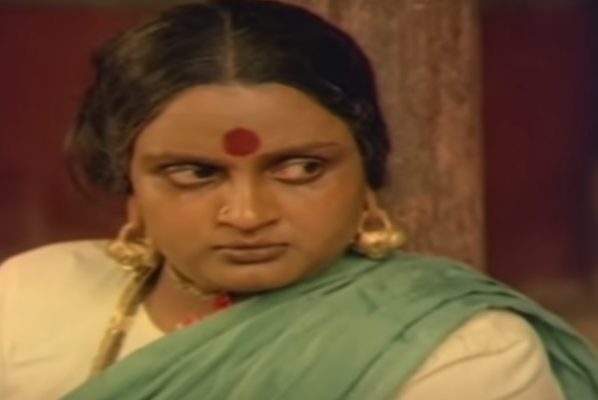
Vadivukkarasi faced a lot of resentment from the public for mouthing rude dialogues at Sivaji in the film. Fans of the legendary actor made her the target of their vitriol. On one hand, Vadivukkarasi’s performance had received critical acclaim. And on the other, she was so good at her role that she was vilified by the public. “It was a confusing time for me. I didn’t know what I was supposed to do. I did not attend the celebrations of the movie’s success as well. I would have liked to.”
The episode repeated itself a decade later. Vadivu recalls being ecstatic to act alongside Rajinikanth in Arunachalam (1997) even when she was told she would play his grandmother. Only three years earlier, in Veera, she was Rajini’s mother, but the actress took that in her stride. In an interview with News7, Vadivu says she knew the extent of her role only when she arrived on sets. “I had to call Rajini an orphan. I appealed to everyone including Crazy Mohan and Vinu Chakravarthy, but they brushed it off and told me to focus on my role.” In Arunachalam, Vadivu as the elderly, hunch-backed grandmother, would berate Rajinikanth for dreaming beyond his ‘station’. Soon after the shot was done, Rajini had himself led a round of applause. “As an artiste, I welcomed the appreciation,” Vadivu says, “but I knew I was the one who would face the wrath of fans later.”
And, it happened. Soon after the release of the film, when she was travelling by train, Rajini’s fans lay down on the tracks in protest. Vadivu had to disembark from the train and apologise to them for having been rude to their idol on screen.
*****
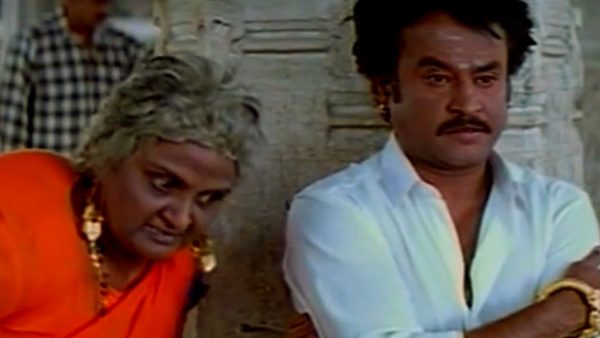
Vadivukkarasi has now made peace with her past. She was never heroine material, she acknowledges. “At the time I worked, heroines looked different. We had Sri Devi, Radha and Ambika. They looked a certain way. I could never be like that. I understood that. My career is God’s doing. Sometimes, it’s better to go with the flow.”
Decades later, Vadivukkarasi has leveraged her movie fame into a successful career in television. Here too, she remains stereotyped. “Villainous characters are easy for me. It is what they expect. I accede to their demands.”
Her public persona remains intertwined with her roles. Many a time, Vadivukkarasi has been criticised by random people for berating their favourite heroine in TV serials. “Ultimately, I got into this field because I needed to put food on the table. I said ‘yes’ to everything. But, they had to say ‘yes’ to me as well, right? I faced a lot of rejection. I had a lot of insecurities. I always had work, though. That’s what mattered. My early experiences with life made me aware of what’s important. Work, any kind of work, is necessary.”
That said, she does feel that heroines are usually subjected to worse treatment in the film industry. For a brief period, they are reigning stars. Once their career wanes, they are force fit into roles of the sister or the mother. “I have seen first-hand how cruel life can be. As heroines, they face heavy expectations. They starve. They modify their appearance to fit into the industry. Ultimately, they end up as the mother of the hero they romanced just a few years back. I never had to face this. I played wife, mother and grandmother in my twenties. I just got used to it.”
Recommended
Tamil cinema was more accepting of heroines of all shapes and sizes when her uncle was the director, she says. “Padmini, KR Vijaya were all curvaceous women. There was never any typecasting. There were a variety of roles on offer. We can only wish and hope that Tamil cinema goes back in time.” The actor has largely restricted her film and television commitments in recent years for she is at that stage of life where she can pick and choose. This is the time I can finally relax, Vadivukkarasi booms. “I enjoy where I am. My life has been a revelation. I was destined to be here. I am here. That is enough.”
Her appearance in the Ram-directorial Peranbu starring Mammootty, Anjali and Anjali Ameer will surprise everyone, she promises. “It is a complex character, and I’m sure it will bring me glory and not brickbats.”
*****
The Vadivukkarasi interview is a Silverscreen exclusive.
